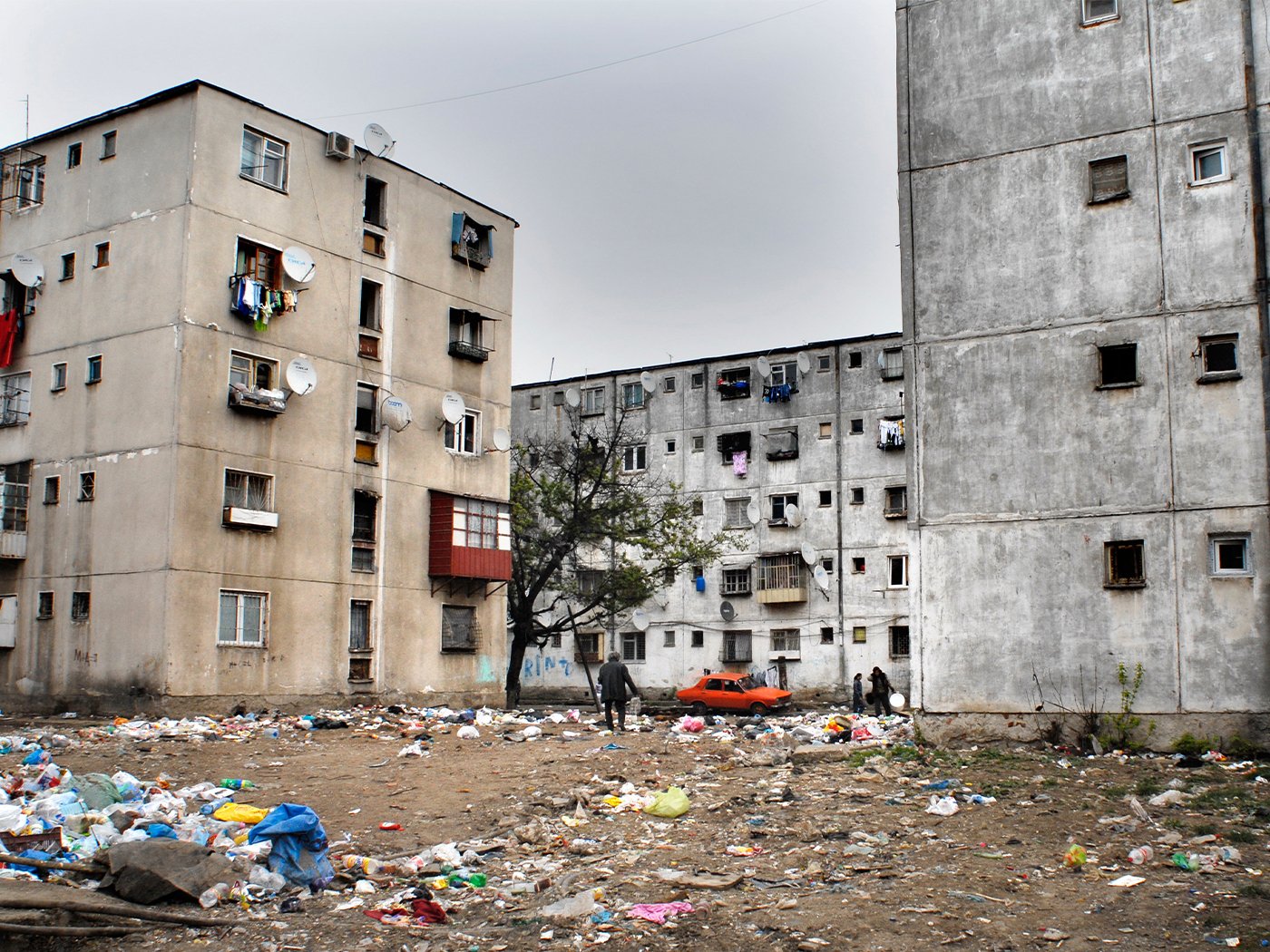I was born in Ferentari, a neighbourhood in Bucharest, Romania. At the edge of the city—and at the edge of attention. For us, Europe was a clean image on the TV screen. In reality, the school walls were cracking, the apartment building had no hot water, and hope was scarce and fragile.
I was one of the lucky ones. I had people—beyond my family—who believed in me. I had access to a scholarship. An opportunity. But it shouldn’t take luck for a Roma child to go far.
In the second round of the presidential elections, we’re talking about fear—and not without reason. We see a form of extremism knocking louder and louder at the door, bearing the name George Simion and the promise of a “national purification". But behind the speeches lies something even more dangerous: the illusion that someone like him brings solutions.
What isn’t said often enough is that Romania has, according to Eurostat, the highest rate of risk of poverty and social exclusion in the European Union: 32%. One in three Romanians. Many of them Roma.
For us, the numbers are even harsher. Almost half of Roma children don’t attend kindergarten. Over 56% of young Roma are neither in school nor working. Only 22% finish high school. And among adults, less than 41% have formal employment.
Roma are not citizens—we’re props
But when the Roma are mentioned in election campaigns, these figures don’t come up. There’s no talk about disparities, about lack of access to public services, about abandonment. They talk about “bought votes”—and we’re ridiculed.
The truth is painful, but simple: when you live in extreme poverty, with no running water, no school in the village, no doctor in the commune—voting is no longer a civic act, but a tool for survival. I’m not justifying it. But I understand it.
And yet, instead of analysing the causes, it’s easier to despise the voter. To roll our eyes and say, “They were manipulated again.”
But maybe we should be asking why the state hasn’t done its job. Why Europe hasn’t reached every yard. Why reform promises didn’t reach us, too.
Simion and others like him exploit this vacuum. They seep into absence, into frustration, into abandonment. They don’t care about people. They care about anger. To them, Roma are not citizens—we’re props. A convenient ethnicity to demonise and profit from.
Many of those who were supposed to defend our interests became silent accomplices
But I want to say this clearly: Roma can no longer be overlooked—not if we want to preserve Romania’s European trajectory.
And still, it’s not only the extremists who’ve used us. The major parties tugged at our sleeves during campaigns, called us for photos, promised strategies, councils, inclusion—and then forgot us. Many of those who were supposed to defend our interests became silent accomplices. They stayed quiet when plans were made without us, voted for budgets without a single line for Roma education, kept their seats but not their conscience.
Behind every “cooperation protocol” signed with Roma communities was a deep lack of will. It was easier to use us for votes than to support us as partners. And this repeated betrayal has built exactly the feeling that now makes us vulnerable to hate and populism: the feeling that we don’t matter to anyone.
Roma are not the problem. We’re part of the solution. We have the youngest population in Romania. We have entrepreneurs, workers, artisans, artists, local leaders. But we are invisible in public policy. Left out of decision-making. Reduced to clichés.
We need communities that are resilient to disinformation and vote-buying.
Romania needs a vision that includes us. We need real investments in education that bring Roma children to school—and keep them there—with trained teachers, psychological support and real, not symbolic, scholarships.
We need vocational training centres in our neighbourhoods and villages, where young Roma can learn useful, in-demand trades—in construction, agriculture, IT. Romania faces a labour shortage. The answer is right here, in our communities—if someone truly looks.
We need support for Roma entrepreneurship—access to loans, counselling and capital. Programmes that invest in Roma culture and art—not as exotic decorations, but as tools to fight hate and build bridges.
We need communities that are resilient to disinformation and vote-buying. That means civic education, local media, authentic leaders. And above all: we need Roma on electoral lists, not just in speeches. As voters, but also as representatives.
We’re not asking for favours. We’re asking for respect and a seat at the table. We’re asking for this country to see us.
And yes—we believe in Europe. We believe Romania can be a country that respects all its citizens. But Europe must also reach the margins. It must reach Pata Rât. And Ferentari.
A Europe that only goes as far as the city centre is a lie.
This second round is not about a person. It’s about a path. About whether we move forward together—or whether we each remain in our own corner, with our fears, prejudices and anger.
I want a country where a Roma child doesn’t need luck to go to high school. A country where Roma with opportunities are no longer an exception but the norm. A country built by each of us.
Romania is ours too. And we’re not letting it fall.
Bogdan Burdusel is an activist for Roma rights and democracy. He holds a master’s degree in Public Administration from Central European University in Budapest. As a political communicator and communications advisor, he supports Roma-led organisations advocating for the rights of Roma across Europe.

Bogdan Burdusel
Contributor
The latest

Serbia Must Amend Missing Persons Alert System to Protect Vulnerable Adults

Constitutional Review of the Šutar Law Confirms Serious Rule-of-Law Concerns

Europe’s Growth Depends on Roma Talent
Browse by category
Campaigns
Events
Facts
Press
Voices
For media inquiries:
[email protected]Sign up here so you don’t miss out on campaign updates, upcoming events and other news from the Roma Foundation for Europe and our network.
Sign up for our newsletter